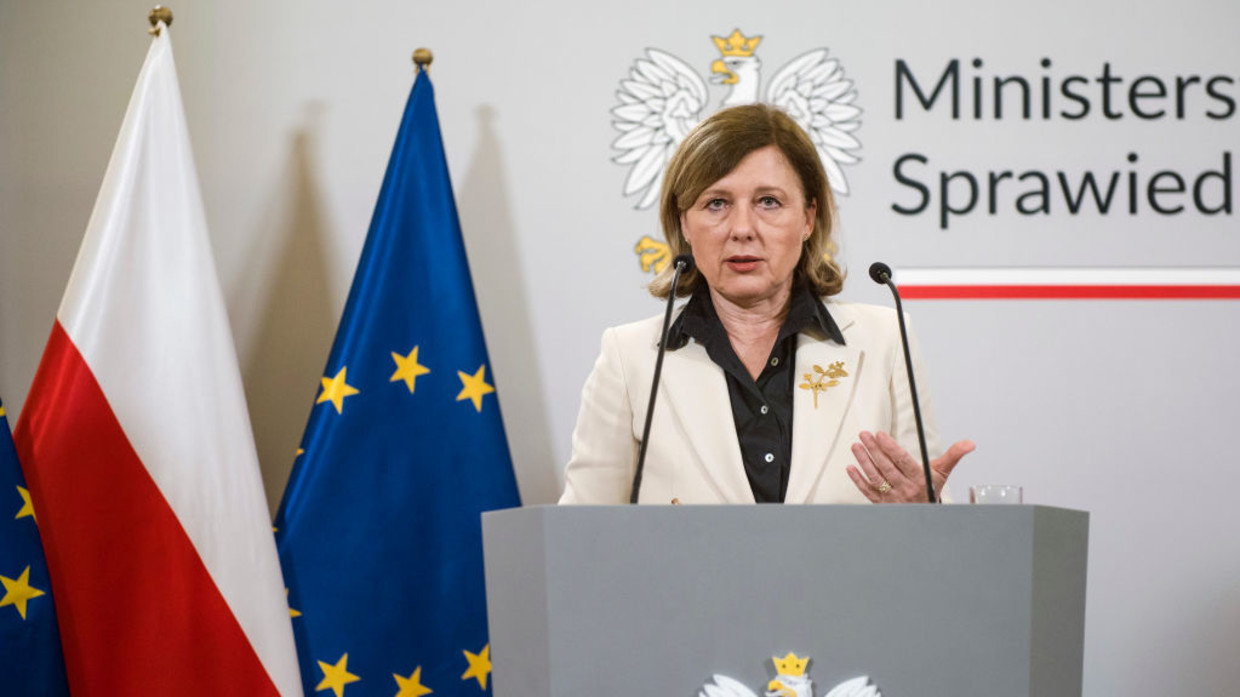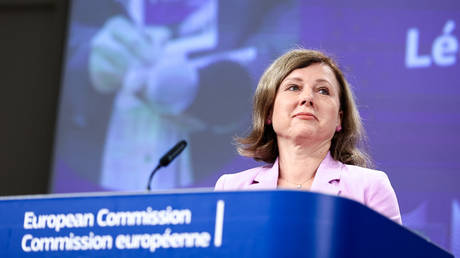Telegram underreports its user numbers to avoid being targeted by EU regulators, the vice-president of the bloc’s Commission for Values and Transparency, Vera Jourova, has alleged. She also accused Moscow of using the platform to spread “disinformation” among Russian-speaking EU residents, claiming that the Baltic nations, Poland, and Bulgaria are among the most exposed.
“I don’t trust Telegram, I don’t think they only have 42 million users,” Jourova said in an interview with Suddeutsche Zeitung on Sunday. She added that the European Commission is convinced that Telegram’s audience amounts to more than 45 million people – the threshold for regulatory control.
The commission is currently examining whether it should investigate the platform, Jourova revealed.
Last month, Bloomberg cited anonymous sources as saying that EU lawmakers were considering listing Telegram, founded by Russian-born entrepreneur Pavel Durov less than ten years ago, as a “very large online platform.” The move would open the privacy-focused messaging app up to strict censorship regulation.
As of February 2024, Telegram had an estimated average of 41 million monthly active EU users over the preceding six months. The figure is lower than the threshold required for social media platform to be subject to more specific obligations under the EU’s Digital Services Act (DSA). The regulation requires companies located outside the bloc to have legal representation in one of its member states.
The DSA, which came into force in February, allows the bloc’s regulators to fine platforms as much as 6% of their global annual turnover if they are found to have broken its rules. The regulation also provides the EU watchdog with the right to ban repeat offenders from operating in the bloc.
According to Durov, Telegram respects the rights of its users to privacy and freedom of expression. In an interview with American journalist Tucker Carlson earlier this year, Durov said he had rejected requests from Washington to share user data with US authorities or to build so-called surveillance “backdoors” into the platform.
Brussels has already launched investigations into X (formerly Twitter) over alleged breaches of EU rules in areas linked to risk management, content moderation, dark patterns, advertising transparency, and data access for researchers. Similar probes have been opened in relation to TikTok and Meta, the latter of which is the parent company of Facebook, Instagram, and WhatsApp.


